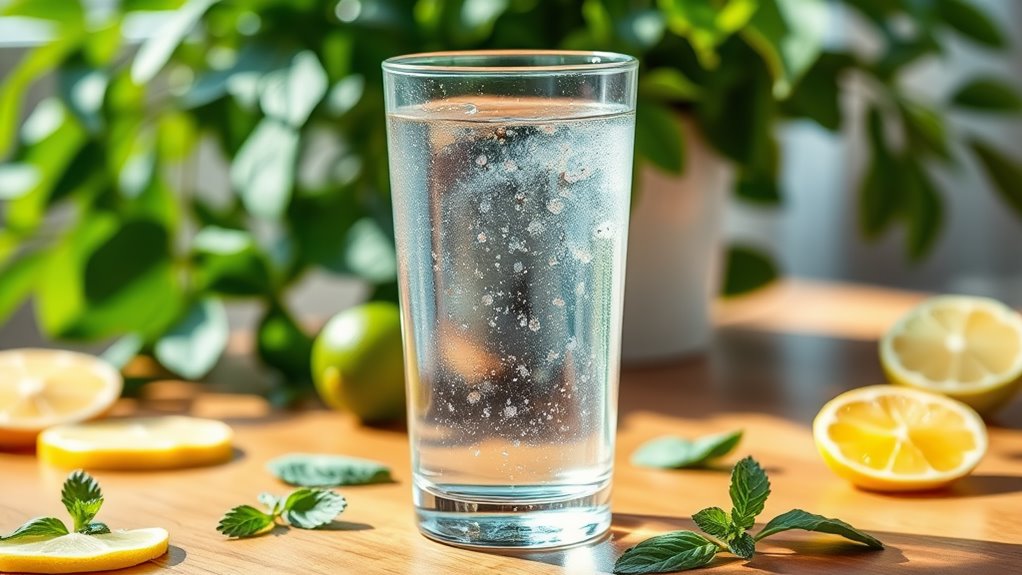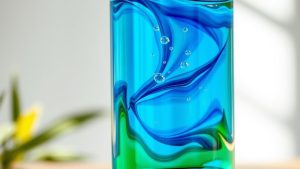
The healthiest water to drink is natural spring water. It's rich in essential minerals like calcium and magnesium, which enhance hydration and support your body's functions. Mineral water is also a great choice as it contains crucial electrolytes. Alkaline water may aid digestion, but it's important to choose the type that suits your needs. Tap and filtered water are environmentally friendly options, too. Discovering the benefits of different water types can help you stay truly hydrated.
When it comes to choosing the healthiest water to drink, understanding your options can make a significant difference in your hydration and overall health. The type of water you select can impact not just your hydration levels, but also your intake of vital minerals and electrolytes.
Let's explore the different types of drinking water available and their health benefits to help you make an informed choice.
Tap water is one of the most common and convenient options. It's generally safe when sourced from reliable suppliers and treated correctly. However, it may lack some nutrients due to purification processes. If you're considering tap water, check your local water quality report to verify it meets safety standards.
Tap water is a convenient choice, but it's essential to verify its safety and mineral content through local quality reports.
Spring water is another appealing choice, as it's naturally filtered through the earth and is rich in minerals like calcium and magnesium. These minerals can contribute to better hydration and nutrient absorption, making spring water an excellent option for those seeking added health benefits.
On the other hand, mineral water contains vital minerals such as sulfate and potassium. If you're looking for a boost in electrolytes, mineral water could be an ideal choice.
Alkaline water has gained popularity due to its higher pH level, often between 8 and 9.5. Some proponents argue that alkaline water can aid digestion and help balance your body's acidity levels. While scientific evidence supporting these claims is still debated, many people enjoy alkaline water for its taste and potential benefits.
Distilled water is pure and free of contaminants, but it lacks the minerals found in other types of water. It's often used in medical applications and manufacturing rather than for everyday consumption. If you're looking for hydration, distilled water mightn't be the best option.
Water's health benefits extend beyond basic hydration. Staying hydrated is crucial for bodily functions, including muscle and joint health, and supports digestion and nutrient uptake. Adequate daily intake is typically 4 to 6 glasses, emphasizing the importance of drinking enough water to stay healthy.
Additionally, the mineral content in spring and mineral waters can provide important electrolytes that aid in hydration, especially after physical activity.
While considering the safety and quality of your water, be mindful of contamination risks. Unpurified water can lead to gastrointestinal issues. Home filtration systems can help reduce contaminants while minimizing your reliance on bottled water, which contributes to plastic waste.
By opting for tap or filtered water, you're making a more environmentally friendly choice.
In terms of taste and personal preferences, it's important to explore different types of water. Your choice might depend on how the water tastes or how it complements your lifestyle and hydration needs.
Remember, most types of water are calorie-free, so you don't have to worry about added sugars or calories.
Ultimately, the healthiest water for you depends on your individual needs and preferences. By weighing the benefits of each option and considering factors like mineral content, purification methods, and environmental impact, you can make a choice that supports your hydration and overall health.
Conclusion
Ultimately, the healthiest water to drink is clean, filtered water that's free from contaminants. While mineral and spring waters may offer additional benefits, the key is ensuring your water source is safe and hydrating. Many believe that the more minerals, the better, but it's crucial to strike a balance; excessive minerals can be harmful. Always prioritize quality and cleanliness over trendy options, and remember: staying hydrated is indispensable for your overall health and well-being.



